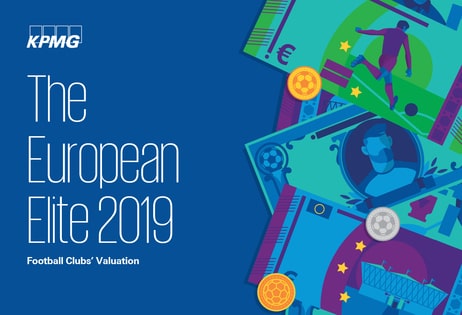The questions over the future of the 56-club Europa League stem from some clubs' perennial dissatisfactions with the competition's status as secondary in quality, status and earnings to the Champions League. Those complaints sharpen this week as the bigger clubs eliminated from the Champions League contemplate Thursday nights in the Europa League, which some perceive as more tiring for the players and distracting from domestic leagues than it is worth.
Platini, however, is preparing to explain that, when quoted by the French regional newspaper Ouest France last week, he was confirming only that Uefa keeps all its competitions under review for possible improvements. There is no concrete discussion within Uefa's committees entertaining the possibility of such a massive Champions League expansion or abolishing the Europa League, which Uefa is in fact seeking to strengthen.
Importantly the major European clubs, from whom any lobbying for change is taken seriously at Uefa, immediately rejected the reports last week. Karl-Heinz Rummenigge, chairman of Bayern Munich and of the European Club Association, left no room for doubt in his response. "We are not in favour of the abolition of the Europa League and totally against the expansion of the Champions League," Rummenigge said, on behalf of the 207 ECA member clubs which compete in the Uefa competitions.
Explaining the top clubs' resistance to the suggestion that the Champions League be expanded, Rummenigge said: "We are not amenable to changing quantity at the expense of quality."
The major clubs do not believe the playing quality, attraction to supporters or commercial allure of the competition would be improved by expanding it and they believe their own earnings and power would only be diluted.
Having reorganised its junior competitions in 2006 and, three years later, launched the Europa League and reduced the five-club group stage to four, Uefa is planning to develop the tournament rather than abolish it. Chief among the incremental changes being considered is for the winners, or even both finalists, to qualifyautomatically for the following season's Champions League. That degree of change, to invest the Europa League with more significance and give clubs a greater incentive to take it seriously, is, Uefa insiders say, most realistic.
Any changes can be incorporated only from the 2015 season, because the structure, sponsorships and television deals for both competitions have been agreed for 2012-15. The respective earnings from TV and sponsorship deals illustrate the degree to which the Europa League is, as commonly viewed by the big clubs, the Champions League's humble relation. In this 2012-13 season the Champions League's gross commercial income is estimated at €1.34bn (£1.09bn), including a small amount for the Uefa Super Cup. The Europa League, featuring 24 more clubs in total, earns an estimated €225m, just 17% of the figure for the world's most prestigious club tournament.
Hence the grumble, which has passed into received wisdom here, that the Europa League costs more to play in than clubs earn from it. That does not bear detailed scrutiny but of course the individual earnings by clubs are much lower. Last season Chelsea and Bayern Munich, the two Champions League finalists, earned €60m and €42m respectively from going so far in the competition, calculated according to Uefa's complicated formula which partly rewards the commercial earnings of each country overall. Atlético Madrid and Athletic Bilbao, the two Spanish clubs which played adventurous and attacking football in the Europa League final, earned €10.5m and €9.5m respectively, a sixth and a quarter of their Champions League counterparts.
Responding to the disparity, Uefa agreed in June to boost the Europa League with an additional €40m from the Champions League, to increase the second competition's attraction to the clubs. The distribution of the money within the Europa League is aimed at giving clubs incentives to progress in the competition.
The 48 clubs in the group stages are expected to be paid €1.3m, with bonuses of €200,000 for every win and €100,000 for every draw. Payments increase as clubs progress, to a maximum possible of €9.9m, plus a share from the "market pool" payments per country.Uefa's competition rules also stipulate that home clubs keep all the income from tickets and hosting matches, so this cash, from European nights which become increasingly meaningful and exciting as a club progresses, is earned as well as the share-out from Uefa. As clubs' and countries' seeding is also graded according to their performance in the Europa League, Uefa believes there is a proper sporting incentive, as well as a decent and improving commercial reward, for clubs to field their best teams and do well in the competition.
The Europa League will always be a lesser event than the competition whose winners take home the famously outsized silver cup but its attractions should perhaps be appreciated rather more than they currently are because it is not a candidate for abolition any time soon.{jcomments on}
 IN ENGLISH
IN ENGLISH 








































